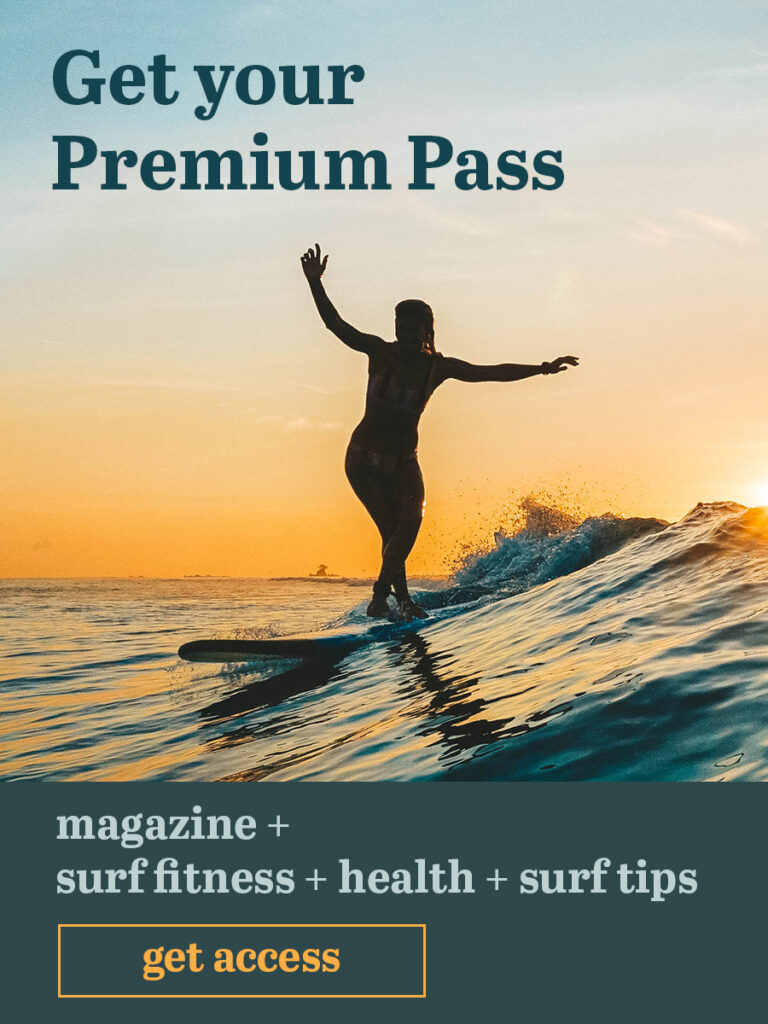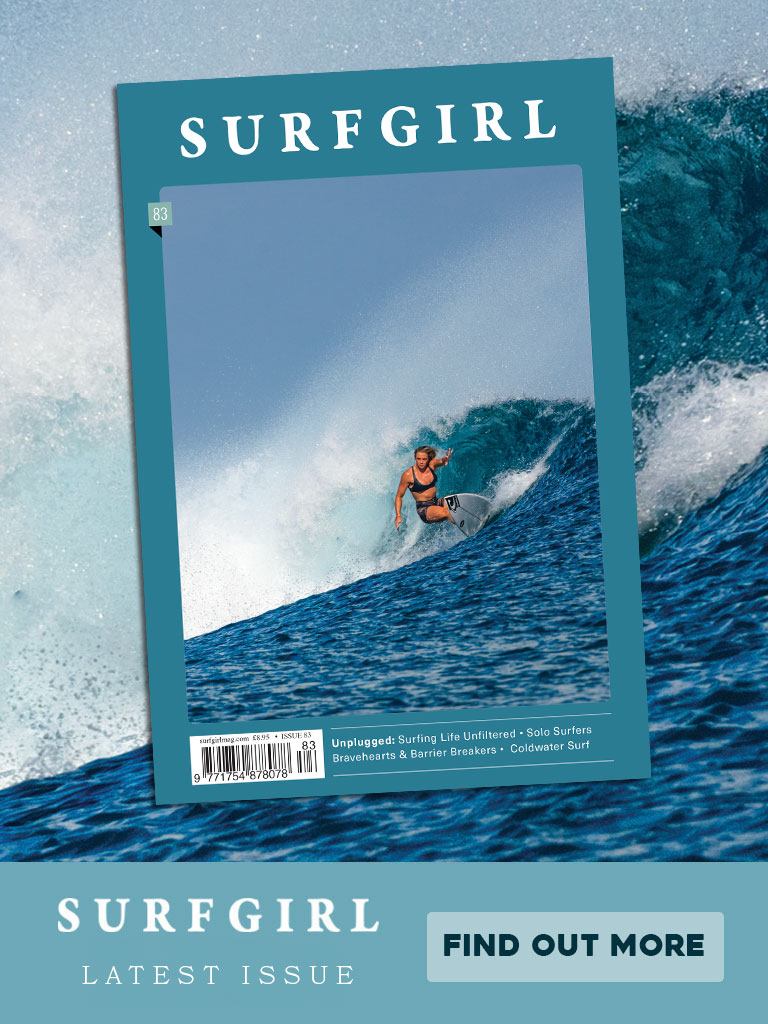
Meet Lizzie Murray, founder of the non-profit organisation A Liquid Future

English teacher, surfer, competitive swimmer, world traveler, political science graduate, free diver, speaker of five languages, skier, founder of a non-profit organisation … Is there anything you can’t do?Hahaha! You are very charming. Yes there are lots of things I can’t do, far too many to mention here but a few would be sing, cook beans and not burn them, understand the male brain … haha, joking on the last one.
As a child from England you travelled the world with your family due to your father’s work, and did not stop all through your twenties and thirties to discover various places on the planet. What impact has all this traveling had on you?
It was a lot of fun, extraordinary really. Being exposed to many different cultures, ways of thinking, interpretations of life as a child when we don’t judge and openly trust has been, I realise now, intrinsic to forming who I am today. It cemented the belief that we are all the same no matter where we come from. We are all made of the same stuff. It also ignited a curiosity in me that continues until today.

I know that you’ve surfed in all the places shown in the ‘Endless Summer II’, probably also in all of the ones shown in the first film. When did you pick up surfing and what does it mean to you ever since it has entered your life?
Haha! Oooh I don’t know about the first ‘Endless Summer’ … I seem to recall they go to Sierra Leone or Cote d’Ivoire, or somewhere in West Africa. I haven’t been there … yet! I picked up surfing in Los Angeles when I was 24 years old, so I was a relative late comer to the sport. Since being well and truly bitten by the surfing bug, well totally consumed by it I’d say actually, it has been the natural compass of my life, steering me on a course I could never have dreamed up or imagined. Perhaps that is what I hold most dear about it, that it unlocks parts of us on the inside that we didn’t know existed and goes on to provide wonderful opportunities for that to be interpreted and realised as a myriad of different outcomes. It led me to set up a non profit. It is the innate creativity, freedom and self trust that surfing enables that means so much to me. Surfing and the ocean are like having two best friends, they help you discover yourself.
You lived in the Mentawais for five years. As a woman alone in a quite male dominated, isolated place, what did this time do to you? In what way do you think it has changed you as a person?
It opened me up. All of me. Made me trust myself and know what I was capable of. Skills, instincts, senses that I had never used in such a way. And that came from having no communications, living in nature with the local people and being 100% reliant on me. It made me question everything, face who I really was, which, naturally included my fears. It was like going along an assembly line in reverse, being taken apart, and, then going forwards through it and coming out truly whole but a different version. But it definitely wasn’t a linear experience! Haha. My understanding of what it is to be a woman anywhere in the world deepened, as did my compassion for girls and women worldwide.

Finding out you had cancer on your eyelids seemed to cause a shift in you and you ended up starting the non-profit organization ‘A Liquid Future’. Did it require a lot of strength to leave Australia where you were living at the time behind to move to an Indonesian island and pursue your dream? What did you find most challenging?
I wouldn’t say it required a lot of strength. I would say it was more about being resolute, mixed with a bit of courage, acceptance of who you really are and what you wish to chase and create in life and not taking yourself too seriously! I walked up and down Manly beach in Sydney every morning for about a month knowing all along the decision I was going to make but it was a matter of accepting it, if that makes sense. Then that day arrives when you just right ok, here we go because I can’t keep walking up and down Manly beach for the rest of my life, well I could but …Most challenging was probably the acceptance of who I am and where my happiness lay, that it was fine for that to be ‘unconventional’ so to speak for where I had come from. Once I’d got that somewhat sorted it was just time to take that leap of faith.
What advice would you give other women who are passionate about doing something that seems quite extreme and outside of what society considers the role of a female?
Go for it if that’s what your instincts and gut are telling you. Have a rough plan, that is adaptable and flexible. Then once you commit, everything shifts. Avenues will open, people will appear to help you and things will happen that you just couldn’t possibly have imagined. Be ready to fail again and again and laugh as that’s actually when the best things happen. A great sense of humour gets you a long, long way. You’ll discover very quickly that there are lots of other women out there embarking on endeavours of a similar vein who will become a great support network. It will never be what you envisioned which again is really where the magic lies. And that is the beauty of believing in yourself and taking the leap, the universe will catch you.

A Liquid Future uses creativity and the ocean as a means to help. For outsiders these terms seem quite random for a non-profit organisation. What’s the concept behind these two words?
Oh yes I can imagine they do. That’s probably something that’s good to mention in the previous question, take a step back from time to time as you will become completely absorbed in what you are doing as it comes from your heart and it’s important to remember people aren’t on the same page as you! The concept is to enable the local people firstly to open up sharing what they dream of creating and doing in light of tourism coming to their island/region and secondly, to provide them with the skills, knowledge and means to be able to do it while at the same time enabling us to learn so much from their way of life. It’s important to remember the locals we work with are shy, have most likely never left their island, do not have access to the internet. It is critical to us to establish that we are here to share, not to tell them what we think is best for them to do but to listen and set about providing them with skills and knowledge that is not provided by their government. Trust and open, honest communication is the basic foundation upon which all else can be built. Without it you are only ever going to impact to a certain level. For long term community buy-in it’s crucial. As we work in coastal communities, surfing is a very effective activity to begin a trust process. It is playful, happens in an open, outdoor place where the whole community can come and join in or observe. Thus the village elders get to know us and see how we interact with their community. It requires the locals trusting us in an element they generally fear while learning to trust themselves in it too. I’ve always felt that bonds created through shared experience in the outdoors are strong and true. It enables the locals boys and men to see the girls in a new light, their grace and strength which has proven beneficial for both genders. Then of course we are developing a relationship with the ocean, as a group and that leads into conservancy of it which we choose to approach with creative programmes, photography, underwater photography, stop-motion animation, video, art, murals that bring in more skill acquisition with media and technology and through the interactive creative media programmes we introduce English. Self-expression and discovery are wonderful ways to learn, empower and share. They bring impact. If it’s yourself and your dream you are following, you are passionate about it, you commit to it and you don’t give up easily. We believe a social approach, translatable at the grass roots level is vital to addressing issues of environmental degradation, climate change and developing tourism along sustainable lines from the community up. We hope our students will be proactive designers of their island’s future. Through various media tools we learn the value they see in protecting their marine environment and the ideas they have for its sustainable development as a tourism zone and how they would promote sustainable tourism for local and regional benefit.

After the Mentawais, where is A Liquid Future now operating and what do you guys do on a daily basis? Please give us an insight into the work you do in a day!
We operate on Morotai Island in Eastern Indonesia. On a daily basis we have our team staff on the ground and we run our Action Communication Programmes which involve photography, as well as underwater photography, art, murals, interactive creative media, English, technology and of course surfing. We run these programmes in three different locations along the East coast of Morotai. The maximum distance we cover is about half an hour from where we live.Twice a week we go to each of those locations and run the programmes from 2pm until 7.30pm, for three different age groups, from young children to youth and then to adults. Depending on what stage we’re at the programmes we’re either outside at the beach, in the jungle or in the classroom. Normally we wake up pretty early and go for a very early morning surf, swim, or something of that nature and then of course have breakfast. The day gets started with planning, preparing everything, jumping on our bikes and going off to the locations, setting up what needs to be ready and running the three lots of classes between 2pm and 7.30pm. After that it’s time to collect any stuff we brought with us at the different locations, drive back home, eat, collapse in a heap and probably laugh and smile at what happened during the day. This is what we call a typical work day. You have to imagine that the roads are empty. There’s no traffic, maybe a few cars and a few bikes, so you wave at everyone you know on the way. Sometimes there won’t be electricity, so you have to be able to change what you might have in mind, and always have back up plans. I discovered that this is actually good because great and spontaneous things usually come from it.
What do you think is the most common misconception people have of non-profits?
I couldn’t comment as I haven’t asked people. From applying for grants it’s believed that we can live off thin air as salaries are absolutely minimal or not provided. This I do find confusing. We do critical work, and often in very challenging conditions yet we shouldn’t get paid because we are helping people or the environment?

What is special about A Liquid Future? Why do you think your work is necessary?
I hope we represent possibilities. Who are you, what do you want to do, and what is it that do you need to have or know to do that? Let’s get to it. We spend so much of our lives being told what to do, how to do it and who to be. I don’t believe that’s what brings balance to an individual, society or the environment .
You look flawless. What’s your beauty secret while being in Indo, running around, teaching kids in the sun, surfing yourself and meeting political leaders?
Haha!! You are being charming again. Thank you for the compliment. Well I guess if you are lit up on the inside, it radiates out.
If there’s one thing you’d like women around the globe to know, what would it be?
Trust yourself. There’s nothing scarier than not doing so.






